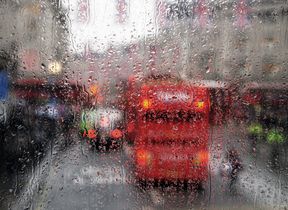Amber warnings for snow
This week will be another very cold week across the UK, and snowy at times in many areas.
This looks like being one of the coldest periods we have had in the UK for a number of years with almost anywhere at risk of seeing some snow over the coming week.
Amber and Yellow National Severe Weather Warnings for snow have been issued for many parts of the UK as bands of showers move in on bitterly cold easterly winds.
These very cold conditions are expected to last through the week as very cold air from northern Scandinavia and the far northwest of Russia crosses the UK and the easterly winds bring a significant wind chill making it feel several degrees colder than thermometers show. Even without the wind chill some locations will struggle to get above 0 °C by day, with night-time temperatures ranging down to - 8 °C quite widely. The lowest temperatures of this spell are expected on Wednesday and Thursday, meaning the cold winter weather will continue into the start of meteorological spring.
Snow showers are already affecting many areas and will get heavier as the day goes on during Monday. There is a Yellow National Severe Weather Warning in place for this.
Snow showers become much more widespread on Tuesday and Wednesday, with regional differences in snow accumulation. Some areas could see a marked build-ups of snow, with accumulations of 5 to 10 cm, while others nearby could see very little. Parts of Scotland could see well in excess of 20 cm of lying snow.
Further snow is expected on Thursday and Friday, as Storm Emma (named by our partners the Portuguese Met Service under their storm naming scheme) pushes north across the continent. This brings the potential for a spell of significantly disruptive snow across southern UK, while gales and freezing rain could pose additional major hazards in places, increasing the risk of power cuts.
The locations seeing the largest accumulations of snow and the biggest impacts from it are covered by Yellow and Amber National Severe Weather Warnings.
Met Office Chief Forecaster, Frank Saunders, said: “Parts of England and Wales are likely to see their coldest spell of weather since at least 2013, and possibly since 1991. This could lead to dangerous conditions on roads and pavements and have an impact on people’s health. There is the potential for disruptive snowfall in many parts of the UK throughout the week and transport disruption is likely in areas with significant snowfall.
“With such low temperatures, snowfall is likely to be powdery, bringing the risk of drifting in the strong easterly winds. However, the majority of the air is so dry that hoar frost and ice will be less likely to form.
“The areas to be affected by snow will change from day to day so stay up to date with the forecast and warnings on our website, app or social media channels, and keep up to date with your local travel information.”
Although Thursday is the first day of meteorological spring the high pressure over Russia bringing the cold easterly flow is expected to remain in place for some time and there are signs the cold spell is likely to last well into next week and perhaps into the following week.
The Met Office is working with partners in road, rail and air transport to help minimize the impacts on the public.
Dr Thomas Waite of the Extreme Events team, said: “With many places facing severe weather it’s really important people do what they need to, to stay warm – especially with the cold forecast to stay for several days.
“Heating homes to at least 18 °C will help keep you healthy. Also make sure you eat warm food, move about at home and wear several thin layers instead of fewer thicker ones.
“Those of us who are fit and well can also do lots to help others – and with weather like this some will need help. If you’re able to, consider clearing snow or ice from pavements and paths, see if friends, family or neighbours who are left housebound by the weather need anything fetching and if you know anyone over 65, or with young children or with heart or lung conditions check to see if they’re ok.
“Cold temperatures inside and out can make you ill and can even kill. Prolonged cold weather like this can be a challenge to all of us; remember that staying warm helps keep you healthy.”
Be aware that @metoffice have issued several weather warnings for snow this week. Click here for more details - https://t.co/VTSvcyXRAa pic.twitter.com/gCeoTJeLjL
— National Highways (@NationalHways) February 26, 2018
Highways England’s Head of Road Safety, Richard Leonard, said: “Gritters are out treating our routes around the clock but it is still important to drive to the conditions when snow is forecast.
“If you need to travel in the morning, make sure you keep your distance and reduce your speed because, even in conditions that seem normal and when the snow is not settling, it can be slippery if ice patches have formed, or where fresh salt has not been worked into the carriageway.
“Drivers should plan their journeys, monitor weather reports and pack a snow kit of blankets, food, water and a shovel if they really need to travel.”
You can find out the current forecast in your area using our forecast pages and by following us on Twitter and Facebook, as well as using our mobile app which is available for iPhone from the App store and for Android from the Google Play store.



